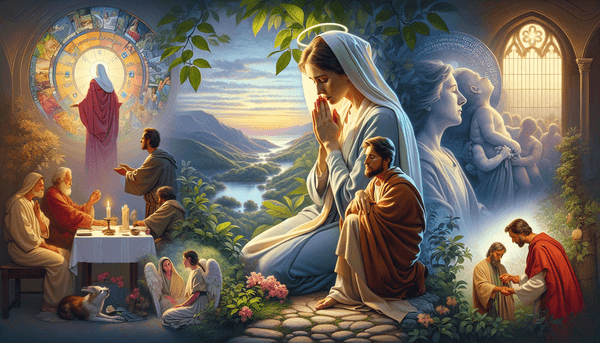Mary Magdalene: A Devoted Follower of Jesus
Mary Magdalene's presence in the New Testament is both prominent and profound. She stands as a figure at the crucifixion and burial of Jesus, bearing witness to His resurrection, a testament to her unwavering devotion (John 19:25, John 20:1-18). Her story has often been overshadowed by misconceptions, yet a closer look reveals her importance as a disciple. The New Testament speaks of women who were integral to Jesus' ministry, suggesting a broader implication for the role of women in the early church. Mary Magdalene's legacy has left an indelible mark on Christian art, literature, and religious practice, with her veneration observed through feast days and a rich historical narrative that continues to be revisited and celebrated by the faithful (Luke 8:2, Mark 15:40-41, Mark 16:9, Luke 24:10).
The First Family: Adam, Eve, and Their Children
The Genesis account introduces us to the first family—Adam, Eve, and their children, Cain, Abel, and Seth. Through these narratives, we witness the spread of humanity and the pervasive nature of sin, originating from the Fall and echoing through their offspring's lives (Genesis 4:1-2, Genesis 4:25, Genesis 5:3-4). The genealogies presented in the Bible serve a crucial role, not only in tracing the lineage of Jesus but also in understanding the interconnectedness of biblical history and the unfolding of God's redemptive plan for humanity (Luke 3:38, 1 Corinthians 15:22).






